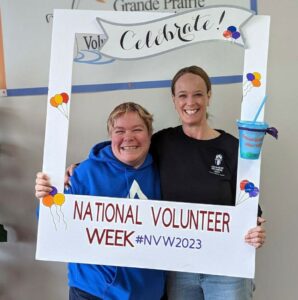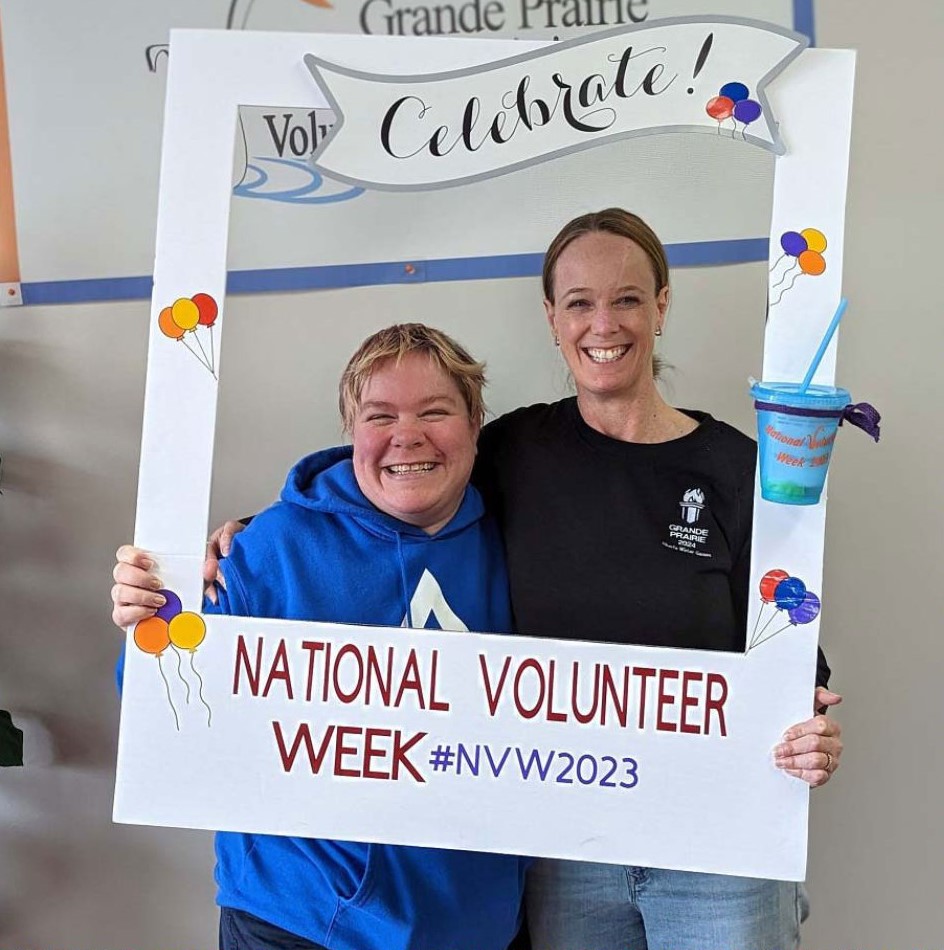As someone who volunteers a lot and someone who recruits & manages volunteers for events, there is no doubt the landscape of the volunteer scene has changed dramatically over the past few years. Volunteers are harder to recruit and even harder to retain. People no longer volunteer the way they used to. Some give fewer hours, some found new ways to fill their time, some are more selective with where they put their time and many simply didn’t return to volunteering when the world re-opened. Add in the fact that many are aging out and fewer young people choose to volunteer and the sector has changed drastically.

Most, but not all, sport organizations are run largely on the backs of volunteers. People who already have full-time jobs and families to take care of. Parents and grandparents who want their kids to fulfil their desire to play, officials that have a passion for their chosen sport, lovers of the activity who want to see it represented in the community. These volunteers are also an endangered species as burnout becomes a very large issue.
In my many years of experience volunteering, both as a volunteer and an organizer, and in speaking with others who do the same, here are some tips I have compiled.
First, have a clear and concise description of what is expected and the time involved. Whether it’s a role on the board or a 1-time event, knowing what is expected and the time commitment involved goes a long way. Personally, I no longer sign up to volunteer for things that don’t have descriptions of what is expected from me.
Second, make your volunteers feel seen, acknowledged and appreciated. Greet them when they arrive. Ensure they have proper instructions and show them where their assigned place is/who their assigned supervisor is. Thank them for donating their time.
If your event is large, have a volunteer lounge/space. Somewhere they can go on breaks, to eat/drink and be away from the crowds. Especially if their shifts are more than 3 hours.
If shifts are long (More than 3-4 hours.) ensure that volunteers are given a snack, water, bathroom break. If the shifts are more than 6 hours, feed your volunteers.
If you are outside, ensure there is shade in the summer and somewhere to warm up in the winter.
If you are trying to recruit people to your board/club, letting them know the responsibilities of the position can tip the decision in your favour. We have heard a large number of sport organizations say that nobody wants to join the board or help out, but what do outsiders looking at your board see? Do they see one person doing it all? Does one person shoulder the burden? Many don’t want to step up or put their names forward believing it will all land on them. Clearly defined roles and expectations can help with that provided you stick to the expectations and don’t assign extra expectations without a clear discussion and agreement.

An example of what not to do from an experience I had:
When we arrived, they didn’t actually know how many volunteers they needed or where they were being assigned. Without talking to us, we were paired up and sent out. My first assignment was standing at a little used gate and monitoring who came in to ensure they had the correct clearance. Early in the morning it was bearable, but once it got warmer and the shade disappeared it was less than ideal. Even if I wasn’t allergic to the sun and prone to heat stroke, it was not a good position. They didn’t offer us water until we had been there a number of hours.
After requesting a change and being moved I went to the main gate and directed attendees for 6 hours. During that time, I was given some water. We were not offered food even though we were there for 10-12 hours. People could choose to line up at the food trucks, in the sun, with event attendees and wait 30 minutes to get food if they wanted. We didn’t actually get breaks unless we asked. When people asked and took breaks the used the outhouse and came back. There was no place for them to go and get away from the sun/crowds and relax.
This was a prime example of how not to treat volunteers and I would not volunteer for this organization again.
From the organizer’s side, it is a nightmare when volunteers show up and they have not familiarized themselves with the role they agreed to or clubs send in ‘bodies’ rather than people capable of completing the tasks.
If the role requires computer skills, don’t send/bring people who are afraid of computers or are computer illiterate.
If the role requires physical tasks like moving tables/chairs, standing all day, stocking shelves, ensure people can handle those tasks.
If the role requires volunteers to interact with the public, answering questions, directing spectators or collecting entry fees. Ensure the volunteer is capable of talking to strangers and comfortable interacting with the public.
Having great volunteers in the wrong roles can damage the reputation of your event as they frustrate attendees and make the event appear to be poorly run. It also isn’t an enjoyable experience for the volunteers. Taking the extra time to match volunteers to the roles that are correct for them can have a large impact on your overall event.
In large events, there are generally roles for everyone and sometimes it just takes a bit to match the volunteer and the role.
See you in the trenches.
